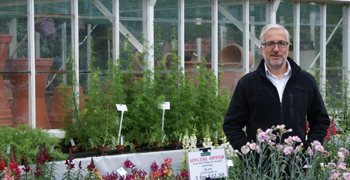For those of us raised in the 1970s, the current economic conditions might lead to an unwelcome feeling of déjà vu! An energy crisis, rising inflation and increasing wage demands may however be unchartered territory for those in our industry not alive in the 70s. Many will never have experienced a significant increase in prices and its consequences to businesses and households, but it can’t be ignored, and we can and should be prepared. No surprise of course that I have some strong views on the subject and how to tackle this thorny issue! Limited to the scope of this short blog I can’t fully explore the debate, but I can pose some constructive questions and some answers for us to consider. Here we go.

The simple and most natural solution when faced with rising input costs is to put up prices. The problem with price increases, if they are not matched by wage increases is that the pound in someone’s pocket doesn’t go as far. This results of course with consumers cutting back on expenditure. The challenge we have is that gardening products generally form part of a consumer’s ‘discretionary spend’ and less disposable income can mean less visits to a garden centre and less spend. Are we then going to see a drop in transaction numbers at garden centres? In essence we are competing with many other retail sectors for a slice of the disposable income, so how do we collectively ensure that the benefits to the consumer of shopping at a garden centre outweigh the benefits of purchasing from competing retail sectors? Can we also make gardening and garden centre spending an important rather than a discretionary spend?
Of course, not everyone suffers when inflation is rampant. There will always be sectors of society that are financially resilient, and we can expect these people to continue purchasing from a garden centre. We have made tremendous strides forward as an industry in attracting new groups of customers, (millennials, in particular), but this group is going to soon be under intense financial pressures. So, how do we keep them? Can we promote and increase the attraction of more budget ranges? Perhaps the real opportunity is to ramp up and drive home the benefits of the ‘grow your own’ message? Increased grocery bills will make this more attractive, and we can also promote the ‘free gym’ benefits of gardening to those struggling to pay gym memberships or to afford other fitness activities. Do we need to be offering free gardening courses to millennials? Can we re-boot nationwide imitates in generations past to get more people to grow their own? The very real benefits to people’s financial, emotional, and physical wellbeing would make this a real win-win for our customers and our sector.
Is there also an alternative to raising prices? Yes, there is, and that involves making savings in the supply chain. Driving out inefficiencies is one sure way of saving money and mitigating the effect of rising input costs. Can we work together as a sector to identify inefficiencies and collectively remove them? I’m not saying we should not raise prices, but they might not need to be raised so high if we could make savings in the whole production and supply process. We may also need to re-think our obsession with percentage gross margin and look more at how, collectively we can increase stock turn on products. A lower percentage gross margin might result in a higher stock turn, which in turn if high enough, will result in a significantly higher cash margin achievable from retail space.
Of course, there are no easy answers. Ultimately as a sector we need debate, and the sharing of thoughts, ideas and resources. On a positive note, as shown during lockdown periods, the current climate is actually very fertile ground for establishing gardening within people’s lives. Whether people live in flats, houses or bedsits, some form of gardening is possible and beneficial. It is our job and challenge now to really spread the message about its benefits and joys.
